New - that's the theme requested by
Challenging the Bookworm Blog, the host of this month's
Carnival of Children's Literature. So, I started thinking, what's new?
A new year, a new decade - everything is new. Color e-readers, computing in the cloud, smarter phones, 4G networks - the list is endless; and I am a fan of “new” and “high-tech.” In fact, this post was written “in the cloud” that most of my documents call home. However, as I ponder the new year, I have a nagging feeling that for librarians, it is the old that may matter most. Despite the wondrous new advances in technology, librarians (particularly children’s librarians) must remember that many people don’t live in the shiny new world - they live in the old one, and perhaps our greatest challenge is to ensure that we use the latest technology to do our ages-old job.
As a public librarian, I see firsthand, the large number of people who do not have home access to the Internet, printing capabilities, or telephone service. We bloggers and other denizens of the Internet are so familiar with technology that we may take it for granted that others have the same knowledge base. Imagine my surprise when my son received a new touch screen, video music player with the capability to receive RSS feeds. “Oh,” I thought, “how excited he’ll be to find that he can receive ESPN updates!” Oh, how surprised I was to learn that he had no idea what an RSS feed is or why he might want to use one! In some cases, the ubiquitous social networking sites have made the internet so easy, that people no longer understand how it works. And this is good that they don’t have to, but it’s also bad, because it’s limiting. Voice over Internet (VOI) protocol, free cloud computing applications, RSS feeds - all of these have the potential to aid librarians in assisting customers, particularly students, teachers, and those with limited resources; but only if customers know how to use them.
It’s also wonderful that new tablets and color e-readers make picture books accessible in digital format. The small size and portability of new e-readers makes them uniquely personal, but also uniquely solitary. I love my e-reader, but I still want to see children with loved ones, cozying up with beautiful, full-sized picture books. Yes, there may be a cool phone app for a beloved children’s book, but we have to make the physical book available as well - especially for the child who will never have an e-reader.
Smart phones are also a boon, however, a growing portion of society relies solely on wireless phone service for Internet access - for reasons of convenience, cost, or availability. But is the same information available to mobile users? Will they be shut out from some content, or forced to pay more for service because of the deregulated nature of wireless access? I just turned on the new “mobile template” for my blog, making it easier to read on a smart phone, but I wonder if it matters. Do most people access RSS feeds? Do they know how to access them from a phone? Do content providers know how to make them accessible? Again, another opportunity for us to ensure that we use high-tech capabilities to fulfill an older, low-tech obligation - leveling the playing field, offering equal access to information.
2 Comments on High-tech retro, last added: 1/16/2011
by Jim
Some folks may have seen
the article in the NY Times yesterday about new teen website Figment. It’s a forum for teenagers to post their own writing and be advertised to…I mean, get the chance to read chapters of works that will be published.
The site is now live, and there’s already ample teen writing to browse through, if you’re into that sort of thing. I’ll just say this: I do feel bad for a generation whose teenage poetry will have life on the internet long after they’ve become embarrassed by it.
That said, I think there’s a lot to love about this idea. It has the same sort of feel as Joseph Gordon-Levitt’s
HitRECord. That site is about creating user generated creative content that can be worked on by a larger online community. HitRECord feels purer because there isn’t a component allowing advertising to crop up. After all, it’s doesn’t seem as profit-motivated as Figment.
However you look at it, I think efforts to create communities around writing are great things. Something about this site, though, seems to be especially artificial. “ZOMG we’ve launched!” What do we think? Nifty place for teens to find a creative outlet or shameless attempt to cash in on YA market growth?
by Rachel S.
I agree with Michael’s post yesterday. Barnes and Noble and Borders are intimidating. Not to say that I won’t spend an afternoon there with a giant stack of books from a myriad of genres and the biggest cup of coffee they have to offer (which is pretty big), but on the days when I actually want to browse for a book I intend to buy, I head to smaller locations. I get overwhelmed by the rows and rows of shelves within shelves and soon realize I’m not even reading the bindings anymore, but just skimming the colors and shapes of each book
—only picking up ones that stand out in that respect regardless of the title.
Smaller bookshops, whether they house used books, are devoted to a single genre, or are just mini versions of the massive box stores have an appeal that cannot be rivaled. My two favorite places to spend my book money in the city are the
Housing Works Bookstore Café in Soho and
WORD Books in Brooklyn. They both have their own unique feel
—a sort of atmosphere that is lacking in the impersonal, albeit well-stocked shelves of the giant bookstore chains.
The selection is smaller, sure, but unless I’m looking for something absolutely specific, I find that doesn’t matter. I’ll still always find something I want and I feel that my choice is much better made. If I’m having trouble, the staff in a small bookstore will more likely know each book they
do stock and will often have certain opinions and recommendations, which is an undeniable advantage of a smaller selection. In fact, both Housing Works and WORD pepper their shelves with little handwritten index cards from members of the staff praising their most recent literary loves. Because they can’t just sell every book that comes out, there has to be some level of thought and selection put into stocking the independent bookshops.
Smaller stores foster a sense of community
—there even used to be a corkboard in WORD that served as a sort of personals section. Anyone could fill out a slip of paper with their name, age and email address followed by books and authors they loved as well as those they hated and then pin it up on the board, in the hopes that some book-reading match made in heaven would soon emerge.
As the holiday season is upon us, gift-buying must be as well. Shopping in an environment that fosters conversation and comfort as opposed to impersonal abundance, I feel, gives the gift itself greater meaning. Sure, the person you so carefully chose that book for might not know where it was bought, but the sense of thought and care that went into it is surely palpable.
I don’t want to come off totally disparaging the bookstore giants
—I love them, too. If you’re looking for something specific, either they’ll have it or will almost certainly have the resources to order it for you. Nowadays there’s near a guarantee that they have a café attached, so there’s no end to the hours you can spend there poring over books you might actually have no intention of buying (okay, so there is an end, as the only times I’ve ever been in a Borders past closing time were for crucial Harry Potter book purchases). Living in the city, it’s easy to forget that oftentimes independent bookstores can’t survive elsewhere and it’s nice to know that the big places are still accessible to the vast majority of the population.
I have a specific experience in mind when I consider entering these havens I call smaller bookstores. When I go book shopping, I want to enjoy it, take my time and truly feel as if I picked the perfect book to read next. I know t
by Miriam
The year is winding to a close and as
some of us immerse ourselves in lists of 2010’s greatest hits, I’m thinking ahead to 2011 and pondering what I’d like to see more of in that prime number year. In no particular order, I want:
Really good historical fiction. You know, like
The Alienist or
I, Claudius or
The White Queen or
The Crimson Petal and the White—the kind of thing that totally transports you to another era, giving you insights into the lives of the characters, and the cultural mores and political imperatives they were subject to, while also thoroughly immersing you in a transfixing story.
A memoir that makes one individual’s journey mirror the preoccupations, experiences, fears and fantasies many, if not most of us, share. Oh, and if that could come with a funny, self-aware but not self-important, charming protagonist whose life I don’t mind being wrapped up in for 300 pages, that’d be great too.
Gripping science narratives. I was browsing in a book store the other day and came across
The Emperor of All Maladies by Siddhartha Mukherjee. I stopped to read so long that I was almost late to my appointment. Dr. Mukherjee grabbed my interest from the very first line and I’m his new biggest fan. I’d like to see more of the kind of writing and storytelling that brings scientific or medical topics to life and creates characters out of concepts or ideas.
A political book that explains what’s going on in our crazy republic. Let’s face it, we have some pretty colorful characters running the country (or trying to) these days and I find myself frequently as baffled as entertained by their antics. I’d love to see someone put it all in some kind of historical perspective while analyzing what it is about us (and them) that would make the founding fathers throw up their hands and head to Vegas.
An edge-of-your-seat, can’t-put-it-down, scary-suspenseful-sexy thriller with a hero/heroine who’d give Jack Reacher a run for his money.
Is that too much to ask? What’ve you guys got?
by Jane
Whenever I go away and am in a place where people are relaxing
—on a beach, say, or sitting by a pool
—I always look at what they are reading. Up until now, I have been curious as to the actual books, fiction or non-fiction and then what titles within those two categories. Is it science fiction, romance, mystery? Is it history, politics, biography or memoir? I can learn something from this kind of research in terms of what people are interested in and I can then use that information in searching out projects to represent.
This past week, my husband and I went to Florida to spend the Thanksgiving holiday with family and I decided to do another kind of research, although I was virtually certain as to what the result was going to be. I decided that once I got through the body scanner or the pat down in security at the airport, that I was going to walk up and down the aisle of the plane I traveled on to see how people were reading, if they were reading. And I was absolutely sure of what I would find out.
First, much to my surprise the pass through security both going and coming was relatively painless; after all of the warnings over the last week and the threatened slow down at the check points, I was not looking forward to the experience; but as luck would have it, none of what was predicted came to pass, at least as far as we were concerned.
Now, on to the actual research. I went through each of the two planes I took and even perused the waiting areas before boarding and I found that almost everyone who was reading a book was reading an actual book and not using any kind of electronic reader. On the plane going down, I saw nobody with Kindles or Nooks or any other reader, but my husband, who helped me with my research, told me he saw two. There were at least 150 people on the flight down so, two readers certainly was surprisingly few. On the flight back which held as many people, I saw one Nook and one person reading on an iPad
—everyone else who was reading a book was reading a hardcover or paperback.
I had truly expected the total opposite. With the enormous increase in the sales of e-readers, and e-books and knowing how easy it is to travel with an e-reader, it just seemed to me a no brainer that these would outnumber print editions. I couldn’t have been more mistaken and I am really surprised.
I wonder, would you have predicted as I did or not? And what, dear reader, do you think I was reading?
by Miriam
Yes, of course I’m grateful for my amazing family and friends, and my funny, smart, inventive and crazy co-workers. Yadda, yadda. Today, right before we go off to cook and eat until we can’t eat any more only to fix ourselves a sandwich with leftover turkey a few hours later, I want to share some of the things I’m thankful for about the venerable, bloody but unbowed publishing business. In no particular order, I’m grateful that
- I was able to read Jonathan Franzen’s brilliant opus in hardcover (that book is HEAVY!) and Robert Harris’ delicious The Ghost Writer (strongly recommend it) on my Kindle. Turns out I still buy hardcovers and have the equivalent of my bedside table’s weighty load in my e-reader ready to dive into wherever I may be;
- the e-book revolution, while metaphorically violent at times, has led to a fresh look at our raison d’etre: books, how they’re published, who reads them, what their value is;
- there is a new optimism about how we can harness the power of electronic publishing for good and not evil;
- Patti Smith won the National Book Award and pleaded with us not to abandon the book;
- more people talk to me about books they love, loathe, are reading, want to read than ever before;
- we’ve had numerous bestsellers this year, as well as huge sales of books that we hope will be bestsellers in a couple of years, as well as books that we didn’t sell for a lot of money but that were well published to lovely reviews;
- publishers are starting to roll out some ridiculous new boilerplates whereby they try to aggregate every right known or that will eventually be devised by the next Mark Zuckerberg (yes, we agents will fight them tooth and nail on every point because publishers need to find ways to survive and thrive that are not at the expense of authors and their rights, but it indicates to me that they’re not keeling over and dying and are actually putting up a fight to remain relevant);
- I get to meet and/or speak with talented, surprising, fascinating characters almost every day—a number of them clients and some clients to be—and have the opportunity to learn something from all of them (David Morrell told me, upon returning from his successful USO trip to Iraq, that the huge chandelier in Saddam’s main palace was made out of plastic!);
- after 21 years of doing the same thing, I’m still having fun.
Happy Turkey Day everyone!
by John
As Thanksgiving rolls around this week, I’m reminded of one of the more confounding paradoxes of my previous career as a children’s book editor: that despite the natural opportunity for kids’ books to tie into the holiday, I could never, ever get a Thanksgiving title to work.
After all, Thanksgiving seems like an easy sell. The story of the Pilgrims makes a perfect subject for picture books, as do the themes of thankfulness, family, and togetherness that Thanksgiving celebrates. You’d think, too, that parents would need a book for the holiday, not only to explain things to toddlers, but to keep them seated and quiet for five minutes! And from the Macy’s parade to Black Friday, Thanksgiving has always been about buying stuff
—so why not books?
Yet, despite multiple attempts to publish books on Thanksgiving and the annual effort to market books for the holiday, I never saw a Thanksgiving book that sold really well. Instead, the best performers seemed to skirt the holiday and focus more on the general season, like Tomie dePaola’s
Strega Nona’s Harvest or Richard Michelson’s and Mary Azarian’s
Tuttle’s Red Barn.
So, if anyone has any ideas why these books don’t work, or better yet, how to make a Thanksgiving book a success, I’d love to know. Because I’d like to think that for the most American of holidays, there must be a successful way to share it through a book. Any thoughts?
by Rachel S.
It’s true. I’m new to the whole business of book publishing
—newer probably than a lot of you reading right now. I learn things about the business every day and while I certainly know more now than I did six weeks ago, I’m still no authority on how to get your book published or even how to perfectly market it so anyone takes interest.
I am not, however, new to reading, writing, or writing while reading. Those things I’ve been doing for years and have gotten pretty good at them! On a functional level at least… In any case, I’m familiar enough with the mechanics of all three (the last is my newest skill as I was never an underliner or write-in-the-margins type of girl until about a year ago). I know what works best for me, personally, when I want to really focus and concentrate on the literary task at hand. Location is key, and the rest of the elements kind of follow from there.
I work and concentrate best, I’ve found, away from home. In my apartment, I get too distracted, listless. My internet is out this week, so I can’t even blame the world wide web as a whole. I don’t know what it is about being in whatever place I’m calling home at the moment, but I can never really concentrate whilst there. If I have a great book I’m eager to read, a piece I need to write, or some other sort of work to get done, my best bet is a coffee shop. Currently, I live exactly one block away from my very favorite coffee shop, so it’s never an issue of getting there when I want to read or have work to do. And thus, I’m on a first name basis with most of the people that work there.
Being out of the house means that I have to be dressed in appropriate out-of-the-house clothing. Which means my brain is more likely not to think that it’s okay to fall asleep or stop working in some other, disastrous way. Being in a coffee shop means that I get a big, warm mug to hold in my hands, which I really find soothing and comforting, while working out any more complicated ideas I may need to put the book or pen down for.
There’s an atmosphere of liveliness that I find invigorating, but not too distracting
—unless I feel the need to be distracted, that is. In any case, coffee shops and cafes where the servers leave you well enough alone are my havens of productivity. (Though I did just have a lengthy discussion with a friend over the perils of reading books likely to make you cry in public.)
I’m curious to see if others share my love of chalkboard menus and all the varieties of caffeine you could want or if you’re on a totally different side of the fence.
by John
Did anyone see
the major feature from New York magazine on James Frey and Full Fathom Five? If not, it’s definitely worth a read, though, like some of the writers from the article, you may feel the need for a shower afterward.
Basically, Frey has set himself up as a book packager, which is an accepted and legitimate practice in publishing. Typically, a packager pays an author or illustrator a flat fee for their work, rather than an advance against royalties, then takes the manuscript and/or art and puts it together as a finished product, which is then submitted to publishers. For example,
Gossip Girl was put together by Alloy Media, then sold to Little, Brown, and several celebrity picture books like Jerry Seinfeld’s
Halloween were package deals as well.
However, the terms that Frey lays out for authors are atrocious and exploitative—a pittance of a fee ($250!), vaguely defined profit sharing, no copyright, no public acknowledgment of authorship, and so on. And the model of success that Frey sells authors on, his young adult novel
I Am Number Four, turns out to be not much of a success at all for his co-author. (Full disclosure—as an editor, I passed on
I Am Number Four, partly because the secrecy over authorship gave me the willies.)
But I guess what bothers me most about Full Fathom Five is how cynically they target the young adult market for their products—sorry, I mean their books. One of the main reasons I got into children’s publishing in the first place is the strong sense of moral responsibility among children’s editors not to publish “bad” book for kids. And while I know that hucksters like Frey have been part of the book business since the beginning, it’s disturbing not only to watch him prey on the YA market because it’s “hot” right now—you know if Adult Horror was selling, he’d be writing ghost stories—but also to witness his attempts at cloaking his credibility issues for a more naïve audience.
So I suppose this post is both a cautionary message and a moral plea for YA writers: Watch out for the Full Fathom Fives, and remember who you’re writing for. Now, excuse me while I hit the showers…
View Next 25 Posts











 “Hi, Mum! Hi, Pop!” Mike squeaks as he hops from the screen onto the table. “Look at me! I’m the first boy sent by television!”
“Hi, Mum! Hi, Pop!” Mike squeaks as he hops from the screen onto the table. “Look at me! I’m the first boy sent by television!”

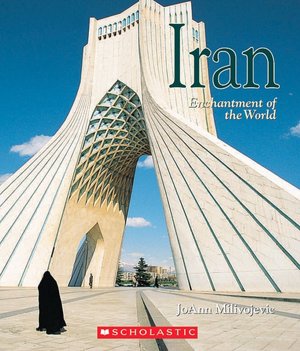

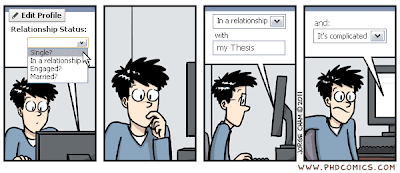
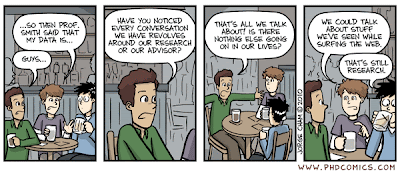




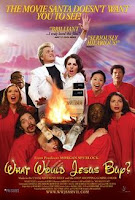
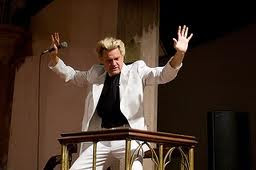


What kid-friendly dvds do you (and your friend) recommend? I need to update this section in my library.
Signing Time! is the best DVD series that we have. They're very popular, too. They circulate quite a bit. Thanks for asking.
Thanks! Our neighboring library serves a town with a school for the deaf, so we usually just borrow their stuff, but I'd like to have a few things myself!
Sounds like great advice, thank you so much for sharing. Will also check out the dvd series you noted above.
I wonder if there is much difference between JSL and ASL. Because my co-worker is orignially from India and often uses older versions of signs that have been swapped out here in the States for more politically correct ones, I've joked with her that I've been learning ISL. It's interesting that JSL is a school requirement in Japan. Does Japan have a higher incidence of deafness, do you suppose?